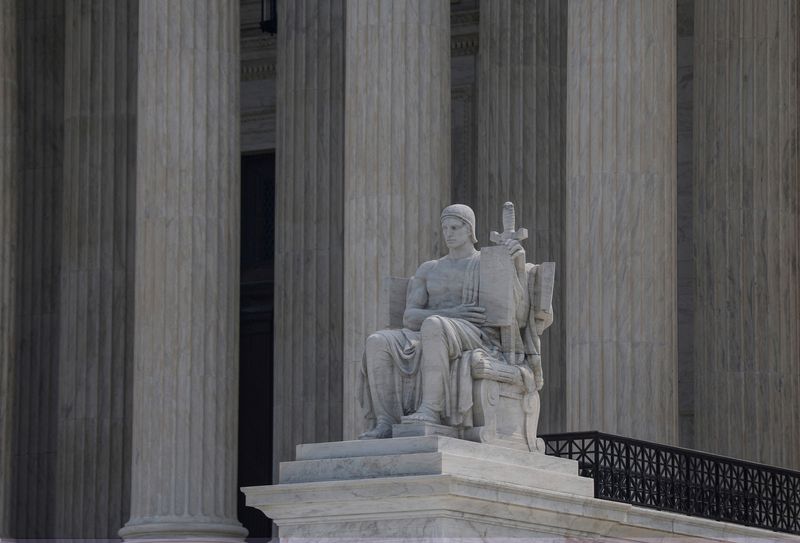By John Kruzel
WASHINGTON (Reuters) - The U.S. Supreme Court on Friday turned away a bid by two Black Mississippians to restore their right to vote after being barred under the state's felon disenfranchisement law that traces its roots to the post-Civil War era and has disproportionately affected Black voters.
The justices declined to hear an appeal by Roy Harness and Kamal Karriem of a lower court's ruling that found that Mississippi's current voter disqualification rule is legal despite an 1890 version of the law having been designed to render Black voters ineligible to cast ballots.
At issue was whether the measure, which imposes a lifetime ban on voting for people convicted of certain felonies, violates the U.S. Constitution's promise of equal protection under the law.
The state's felon disenfranchisement policy has been shown to have a disproportionate impact on Black Mississippians, nearly 29,000 of whom were disenfranchised between 1994 and 2017, according to court filings. Black Mississippians account for 36% of the state's voting age population but 59% of those who have been disfranchised for life due to a felony conviction.
Harness was denied the vote after he was convicted in 1986 of forgery and Karriem was disenfranchised following a 2015 embezzlement conviction. Both completed their criminal sentences and joined a 2017 lawsuit that sought to restore their vote.
Their lawsuit argued that Mississippi's modern felon disenfranchisement policy has retained the discriminatory intent behind an 1890 version of the law that was adopted in the state constitution after the nation's Black population gained the right to vote following the 1861-1865 U.S. Civil War that ended slavery in states including Mississippi.
The 1890 version had removed crimes thought to be "white crimes" and added those thought to be "Black crimes," with the aim of discriminating against Black voters, according to court records. The U.S. Constitution permits states to disenfranchise felons but forbids race-based voter discrimination.
In their petition for appeal to the Supreme Court, lawyers for Harness and Karriem told the justices "the attendees to Mississippi's 1890 Constitutional Convention conspired to eliminate African American voting and thereby cement white political power in the State," adding that Mississippi had taken "no action in the intervening years to separate the disfranchisement provision from the delegates' invidious plan."
Mississippi has since amended its rule, once in 1950 to remove burglary from the list of disqualifying crimes and again in 1968 to add murder and rape as crimes resulting in the denial of the right to vote. Each amendment was proposed by Mississippi's legislature before being approved by a majority of voters.
Eight crimes listed in the 1890 version of the provision - bribery, theft, arson, obtaining money or goods under false pretense, perjury, forgery, embezzlement and bigamy - remain as disqualifying offenses today.
The legal challenge sought to strike down the portion of the Mississippi felon disenfranchisement provision containing crimes that appeared in 1890 - but would allow for voting rights to be stripped from those convicted of the later-added crimes of murder and rape.

A key question in the case was whether the process of amending Mississippi's felon disenfranchisement provision purged the discriminatory intent behind the 1890 version and brought the law into compliance constitutional race-based voter protections.
A federal judge in Mississippi ruled against Harness, Karriem and other plaintiffs in 2019. The New Orleans-based 5th U.S. Circuit Court of Appeals last August agreed, saying that Mississippi's current felon disenfranchisement policy had "removed the discriminatory taint associated with the provision adopted in 1890" and that plaintiffs had failed to show the current version had been motivated by racism.